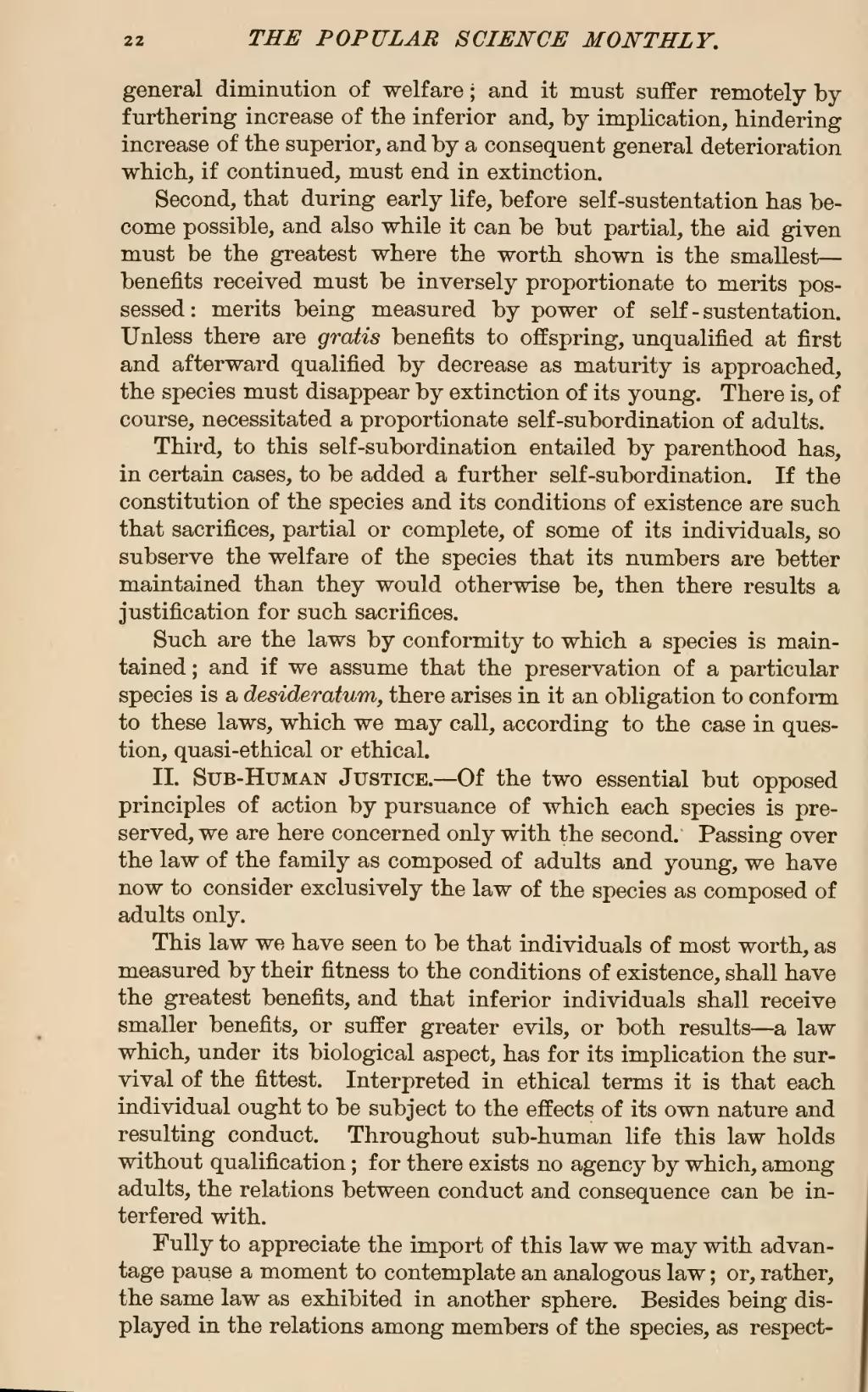general diminution of welfare; and it must suffer remotely by furthering increase of the inferior and, by implication, hindering increase of the superior, and by a consequent general deterioration which, if continued, must end in extinction.
Second, that during early life, before self-sustentation has become possible, and also while it can be but partial, the aid given must be the greatest where the worth shown is the smallest—benefits received must be inversely proportionate to merits possessed: merits being measured by power of self-sustentation. Unless there are gratis benefits to offspring, unqualified at first and afterward qualified by decrease as maturity is approached, the species must disappear by extinction of its young. There is, of course, necessitated a proportionate self-subordination of adults.
Third, to this self-subordination entailed by parenthood has, in certain cases, to be added a further self-subordination. If the constitution of the species and its conditions of existence are such that sacrifices, partial or complete, of some of its individuals, so subserve the welfare of the species that its numbers are better maintained than they would otherwise be, then there results a justification for such sacrifices.
Such are the laws by conformity to which a species is maintained; and if we assume that the preservation of a particular species is a desideratum, there arises in it an obligation to conform to these laws, which we may call, according to the case in question, quasi-ethical or ethical.
II. Sub-Human Justice.—Of the two essential but opposed principles of action by pursuance of which each species is preserved, we are here concerned only with the second. Passing over the law of the family as composed of adults and young, we have now to consider exclusively the law of the species as composed of adults only.
This law we have seen to be that individuals of most worth, as measured by their fitness to the conditions of existence, shall have the greatest benefits, and that inferior individuals shall receive smaller benefits, or suffer greater evils, or both results—a law which, under its biological aspect, has for its implication the survival of the fittest. Interpreted in ethical terms it is that each individual ought to be subject to the effects of its own nature and resulting conduct. Throughout sub-human life this law holds without qualification; for there exists no agency by which, among adults, the relations between conduct and consequence can be interfered with.
Fully to appreciate the import of this law we may with advantage pause a moment to contemplate an analogous law; or, rather, the same law as exhibited in another sphere. Besides being displayed in the relations among members of the species, as respect-

